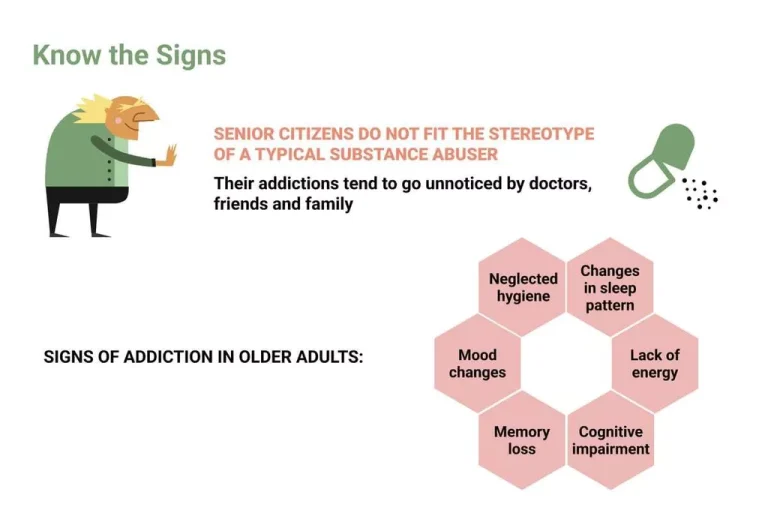
Just 16% of those who do imbibe say they sometimes overindulge on alcohol, the fifth consecutive reading this figure has been below 20% and the lowest in Gallup’s trend by one point. From 1978 through 2010, more than 20% of Americans, reaching as high as 35% in 1989, reported sometimes drinking more than they should. About six in 10 U.S. adults, 58%, now say they have occasion to drink alcoholic beverages, slightly below the historical trend of 63% in Gallup polls dating back to 1939.
Changes in alcohol tolerance over time
- But it can also develop with regular and continued alcohol use in social drinkers.
- This process is simple to understand but hard to follow, yet it works miracles in reducing alcohol tolerance.
- If you usually handle alcohol fine, remember that many factors can influence your tolerance on a day-by-day basis!
- Alcohol increases the potency of GABA, which is why it has sedating and relaxing effects.
- Alcohol withdrawal occurs when you are physically dependent on alcohol and suddenly stop drinking or significantly reduce the amount you consume.
- This helpline is answered by Legacy Healing Center, an addiction treatment provider with treatment facilities in California, Florida, Ohio, and New Jersey.
A large study in the Annals of Oncology found even light drinking raises risk of mouth, intestinal and breast cancer, compared to those who abstain from alcohol. “Estimates of the health benefits from alcohol have been exaggerated while its harms have been underestimated in most previous studies,” Stockwell continued. “I never would recommend to someone, ‘Go ahead and drink wine, can you gain a tolerance to alcohol even if you don’t like it, because you’re going to be less likely to have a heart attack,’” Li said. Perhaps the most common myth about the benefits of alcohol is the idea that an occasional glass of red wine boosts heart health. Meanwhile, a study published last month showed that deaths related to excessive drinking are rising in the United States, especially among women.
Exploring Americans’ Satisfaction With Their Personal Lives

Alcohol tolerance refers to the bodily responses to the functional effects of ethanol in alcoholic beverages. This includes direct tolerance, speed of recovery from insobriety and resistance to the development of alcohol use disorder. Other studies found that sons of fathers with AUD displayed acute tolerance for alcohol – experiencing the pleasurable effects of alcohol early in drinking sessions while not experiencing the impairing effects of alcohol later in the sessions. Have you ever known someone who could consume large amounts of alcohol and not display any obvious signs of intoxication? That is because that person has developed a functional tolerance to alcohol. In other words, if you have developed alcohol tolerance, you have to drink increasingly greater amounts of alcohol to feel the same effects you used to feel with fewer drinks.
Presidential Election Center
Functional tolerance to alcohol can develop independently of environmental influences with exposure to large quantities of alcohol. Using significant higher amounts of alcohol, researchers found that laboratory animals developed tolerance in an environment different from the one in which they were given alcohol. People who go to clubs or pubs regularly become so used to the environment where they develop AT while they are in that environment.
We publish material that is researched, cited, edited and reviewed by licensed medical professionals. The information we provide is not intended to be a substitute for professional medical advice, diagnosis or treatment. It should not be used in place of the advice of your physician or other qualified healthcare providers. Unfortunately, the only treatment for alcohol intolerance is avoiding alcohol. No drug will help you avoid the symptoms of alcohol intolerance or lessen your cancer risk. Even if you only have mild symptoms of alcohol intolerance, you should avoid alcohol.

When the hedonic effects of the drug subside and when the b-process gets progressively larger over time, more complete tolerance to the initial euphoric effects of the drug results (Koob and Le Moal, 1997). Thus, we argue that the study of hedonic tolerance to alcohol can be used as a surrogate for understanding AUD. Although it has been widely believed for decades that there are health benefits linked with moderate amounts of alcohol consumption, not everyone who drinks experiences health benefits from it. According to the largest study evaluating the relationship between alcohol use and chronic disease, which included over 1 billion people across the world, the safety and potential benefits of drinking alcohol depend largely on your age. Specifically, this groundbreaking study found that there are no health benefits of drinking among those who are under the age of 40.
- By signing up, you agree to the Terms of Use and Privacy Policy & to receive electronic communications from VICE Media Group, which may include marketing promotions, advertisements and sponsored content.
- Have you ever known someone who could consume large amounts of alcohol and not display any obvious signs of intoxication?
- Your health insurance company will only pay for services that it determines to be “reasonable and necessary.” The treatment center will make every effort to have all services preauthorized by your health insurance company.
- That is why alcohol detox and alcohol withdrawal treatment is administered by medical professionals.
When should you cut down on drinking?

However, the development of alcohol tolerance can lead to further issues, such as physiological dependence and alcohol use disorder (AUD). Alongside other symptoms, it can also indicate the presence of an alcohol use disorder. Developing a tolerance for alcohol’s effects quickly could be a clue that the drinker is at risk of developing alcohol-related problems whether they are a son of a family member with AUD or not.
- People who have asthma, hay fever, or other allergies to foods may have a higher risk of developing an alcohol intolerance.
- Allergy symptoms that affect breathing or have the potential to block your airway, such as swelling in the mouth or of the tongue, can be life-threatening.
- Alcohol intolerance stems from genetic causes, the symptoms of which can appear at any time in life.
